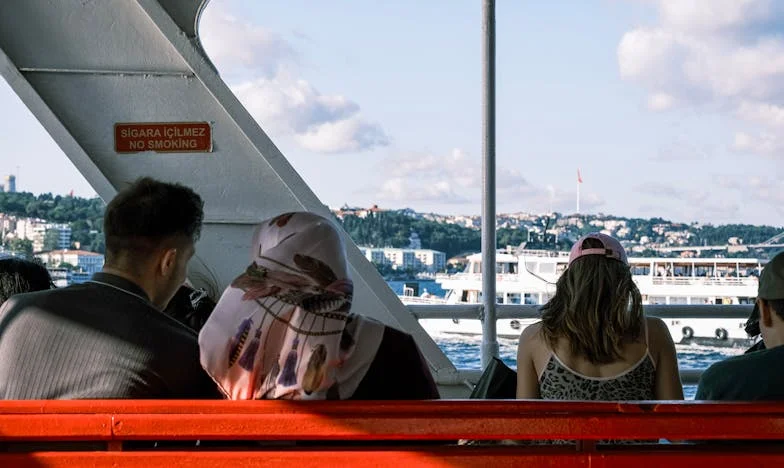Three Miles Down the Road: Choosing Distance, Finding Myself
“You’re really leaving, Sarah? Just… like that?”
My mother’s voice trembled across the kitchen table, her hands wrapped so tightly around her coffee mug I thought it might shatter. The morning sun slanted through the window, catching on the tears she tried to blink away. I sat across from her, my own hands folded in my lap, heart pounding so hard I thought she might hear it.
“I have to, Mom. I got the job.” The words felt hollow, like an excuse, but it was the truth. After four years of college and three of working at the same small-town insurance office, I’d finally landed a marketing position in Austin. Three hours away from home. It wasn’t New York or LA, but it was away.
She stared at me, silent, searching my face for any sign that I might change my mind. “And what about me?” she whispered. “What about your father?”
Dad had died when I was sixteen. Since then, it’d been the two of us: me and Mom against the world. She’d sacrificed everything—late nights, weekends, dreams—so I could have a shot at something more. And now I was leaving her behind.
“I’ll come back to visit, I promise,” I said, but my voice cracked. I didn’t know what else to say. Was it selfish to want my own life? To crave space, autonomy, a new city where people didn’t know me as “Linda’s daughter” or “the girl whose dad died young”?
The kitchen clock ticked. I remembered being ten, sitting in that very seat, watching Mom bake cookies. She’d tell me, “You can be anything, Sarah. The world’s out there, waiting for you.” Now, the world was calling and she looked so small, so afraid.
The next few weeks passed in a blur of cardboard boxes, job onboarding emails, and awkward goodbyes. The day before I left, my best friend Jessica came by. She flopped on my bed, legs crossed, a pint of Ben & Jerry’s between us.
“You sure about this?” she asked between spoonfuls.
“I have to be,” I said. “If I stay, I’ll suffocate. But if I go…”
“She’ll be okay,” Jessica said, softer this time. “She’s stronger than you think.”
The morning I left, Mom hugged me so tight I could hardly breathe. “Call me every Sunday,” she said, and I nodded, swallowing the lump in my throat. I loaded my car and drove away, the house growing smaller in my rearview mirror until it vanished completely.
Austin was loud, bright, and full of strangers. I threw myself into work, making friends with coworkers, learning to navigate the city, pretending I was fine. I called Mom every Sunday, sometimes more. At first, the calls were long. She’d ask about my job, my new friends, whether I was eating enough. But she never talked about herself, never told me if she was lonely.
A month in, I heard it in her voice—the brittle edge, the effort it took to sound cheerful. I came home for Thanksgiving, expecting things to feel normal. Instead, I found grocery store casseroles in the fridge and dust on the piano. She was quieter than ever, and when I left again, she walked me to my car and said, “It’s too quiet here now.”
I drove back to Austin, guilt gnawing at me. Was I doing the right thing? Was my independence worth her loneliness?
December brought a new crisis. Mom slipped on ice, breaking her wrist. She called from the ER, her voice small. “Don’t panic, honey. I’m fine.”
I drove home that night, heart in my throat. The house was dark when I arrived. I found her sitting at the kitchen table, her wrist in a cast, her eyes red. “I just missed you,” she whispered.
For a week, I cooked, did laundry, and watched TV with her in silence. The old rhythm returned, but it felt different—like I was a guest in the life I used to live. When it was time to leave, she squeezed my good hand. “I’m proud of you, Sarah. I am. But it’s hard.”
Back in Austin, I listened to my friends talk about their families—some who called every day, some who hadn’t spoken in months. I wondered, is there a right distance? How do you balance your own life with the needs of the people who raised you?
Six months later, Mom called with news—she was joining a book club, volunteering at the library, going to church socials again. Her voice sounded lighter, freer. “I miss you, but I’m okay,” she said. “Really.”
That night, as I sat alone in my apartment, I realized she was finding her own way, just as I was finding mine. The distance hurt, but it also healed.
Sometimes I still ache with guilt, and sometimes I wonder: what’s the right answer? Should we stay close to our parents, or is it okay to chase our own lives, even if it means leaving them behind? Is it selfish, or just part of growing up?
What would you do, if you were me?
